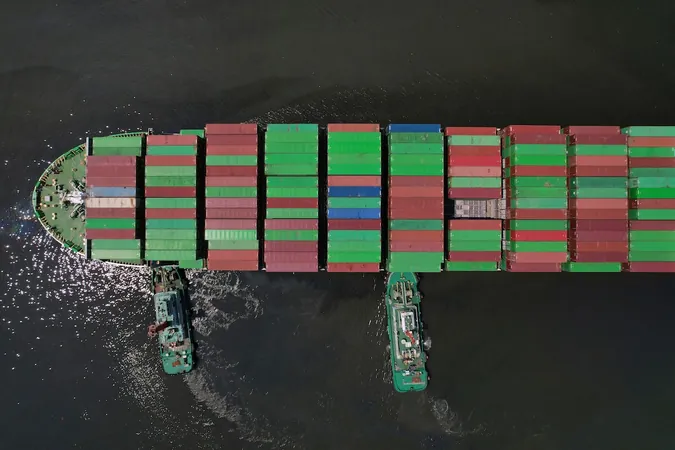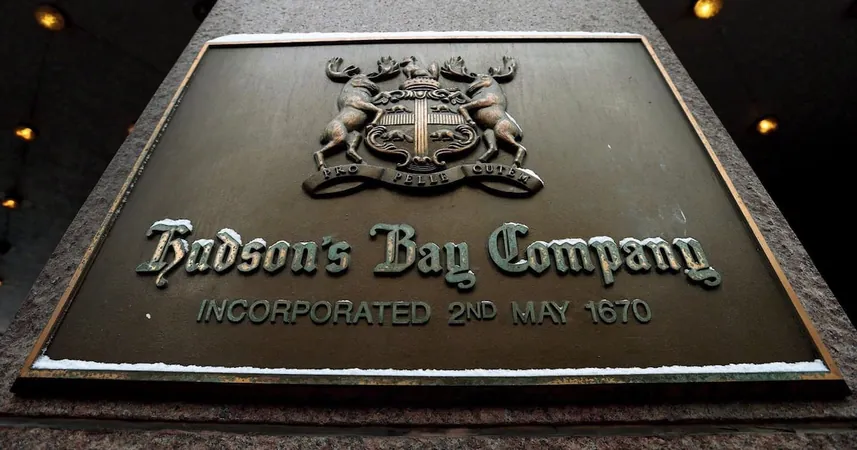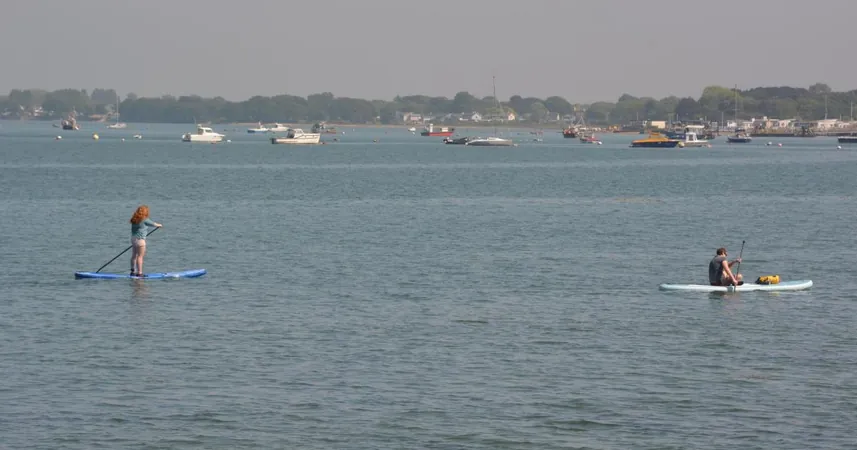
Desperate Measures: Somali Fishermen Claim They're Not Pirates After Seizing Chinese Trawler
2025-01-15
Author: Noah
Mogadishu, Somalia – A Dramatic Turn of Events
In a dramatic turn of events off the coast of Puntland, a group of local fishermen has taken matters into their own hands, seizing a Chinese fishing trawler and holding its crew hostage. The hijackers, who have chosen to speak under pseudonyms for their protection, express deep frustrations over the foreign fishing fleets that have been depleting their waters and threatening their livelihoods.
Liban Hassan, a 32-year-old fisherman, swapped his net for a firearm recently, as he and his compatriots took a stand against what they describe as an ongoing assault on their way of life. After a tense seven-week standoff at sea, the ship and hostages were finally released earlier this week.
Condemnation from the Chinese Embassy
The Chinese Embassy in Somalia has condemned the hijacking, emphasizing the danger it poses to the safety of international navigational waters. However, many locals, including Liban, insist they are not pirates, but rather a community besieged by foreign vessels that disregard Somali laws and regulations regarding fishing zones.
Local Fishermen's Frustrations
Liban explained the pervasive issue: “The trawlers come here and take everything from our seas – fish, lobsters, nothing is spared. We watch as our oceans are polluted and our fish stocks are depleted.” His sentiments reflect a broader sense of anger and helplessness prevalent among local fishermen, who feel abandoned by the international community and their own government as illegal fishing thrives.
The Impact of Illegal Fishing
Illegal fishing has plagued Somalia since the fall of its central government in 1991, allowing foreign trawlers to exploit the resources without oversight. Emerging from the chaos and violence that followed, Somali piracy became one of the few means of resistance for local fishermen. However, even as piracy has diminished due to international naval operations, such as the European Union's Naval Force, illegal fishing continues to skyrocket, driving desperate fishermen to take radical action.
Public Outrage and the Hijacking Operation
In November, public outrage escalated in Puntland as locals united against the illegal fishing trawlers. It was against this backdrop that Liban and his group decided to act. After monitoring the trawler closely, they launched their hijacking operation on November 25, asserting their dominance and overwhelming the crew.
During the seizure, Liban reported that the armed Somali security guards aboard the trawler surrendered without a fight, realizing they were outgunned. He elaborated that upon capturing the vessel, they were able to acquire weapons and ensure the crew was secure and unharmed throughout the duration of the hijacking.
Negotiations and Release of the Hostages
The hijackers initially received calls from local businessmen urging them to release the ship for ransom; however, Liban stated that these offers did not meet their expectations. After ongoing negotiations with various local clan leaders and Puntland officials, an agreement was finally reached, leading to the release of the vessel and its crew on January 13.
Questions on Sustainability and Authority
The aftermath of the siege has raised profound questions about the sustainability of local fishing practices and the cooperation of authorities in regulating foreign operations. Critics argue that the lack of support from the government only adds to the desperation felt by communities like Liban’s, ultimately perpetuating a cycle of violence and exploitation.
Divided Opinions Among Locals
In stark contrast, opinions among locals are divided. Some praise the hijackers as heroes standing against foreign exploitation, while others condemn their actions as violent and counterproductive. Tribal chief Garad Jama Isse warns that these individuals exploit the plight of the community for personal gain, threatening to worsen an already volatile situation.
A Complex Issue
“While we share concerns about the pillaging of our resources, the rise of armed piracy is a far greater peril,” he argued. The complexity of the issue further complicates the already fragile social fabric, where the emergence of petty criminal activities fueled by piracy could spell disaster for future generations.
Fishermen Trapped in a Hostile Environment
As Somalia navigates through its troubled waters, fishermen like Liban feel trapped, with their livelihoods at stake as they face valiant foreign trawlers and the specter of piracy. “It’s like being a prisoner in your own home,” he shared, capturing the essence of a community grappling for survival in an increasingly hostile environment.
Broader Struggles Along the Horn of Africa
The saga of the hijacked Chinese trawler is just one reflection of the broader struggles that continue to unfold along the Horn of Africa, where the battle for resources and rights pushes fishermen toward desperate measures. What lies ahead for Liban, his community, and the fishing industry as a whole, remains an open question in the months to come.









 Brasil (PT)
Brasil (PT)
 Canada (EN)
Canada (EN)
 Chile (ES)
Chile (ES)
 Česko (CS)
Česko (CS)
 대한민국 (KO)
대한민국 (KO)
 España (ES)
España (ES)
 France (FR)
France (FR)
 Hong Kong (EN)
Hong Kong (EN)
 Italia (IT)
Italia (IT)
 日本 (JA)
日本 (JA)
 Magyarország (HU)
Magyarország (HU)
 Norge (NO)
Norge (NO)
 Polska (PL)
Polska (PL)
 Schweiz (DE)
Schweiz (DE)
 Singapore (EN)
Singapore (EN)
 Sverige (SV)
Sverige (SV)
 Suomi (FI)
Suomi (FI)
 Türkiye (TR)
Türkiye (TR)
 الإمارات العربية المتحدة (AR)
الإمارات العربية المتحدة (AR)